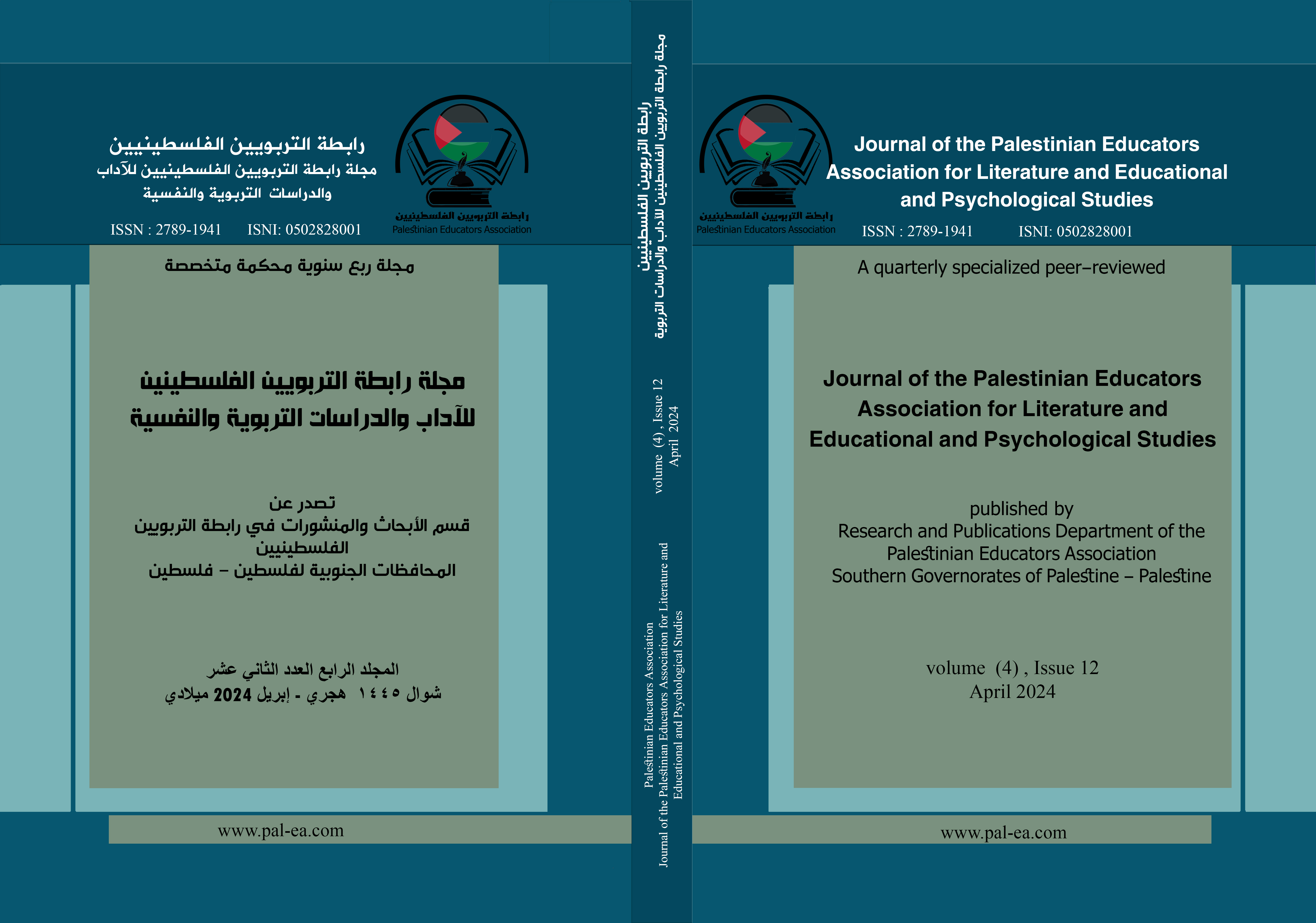Treat mathematical concepts through story
Keywords:
(Story, cartoons, ed,mathmation concepts, drama and acting)Abstract
The initiative is based on treating weak mathematical concepts through the story and producing cartoon characters to illustrate them in an interesting way for the students and appropriate for their ages. We have developed the story to be in the form of electronic stories with childish characters. The initiative provided the student with an element of suspense, as the educational rule confirms that there is no learning without suspense. The initiative was well received. The interest of the targeted students reflected its impact on their achievement, which improved, and resulted in a love of the subject and a longing to learn more. It was noted that the students' interest increased in each session and their willingness to listen eagerly, in addition to their attempt to come up with a similar.
This research explores the use of storytelling and cartoon characters to teach mathematical concepts to students in an engaging and effective way, leading to improved academic performance and a love for the subject. The results of the study showed an improvement in the level of students and the speed of their understanding of the information. It also contributed to increasing the interest of the students in each group and their eagerness to listen to the voices for the story, in addition to their attempt to come up with a story that would develop their imagination and abilities, the youngest.
Downloads
References
References
● [1] Brenna Hassinger-Das, Nancy C. Jordan, Nancy Dyson. (2015). Reading Stories to Learn Math: Mathematics Vocabulary Instruction for Children with Early Numeracy Difficulties. https://www.ncbi.nlm.nih.gov/pmc/articles/PMC4696600/
● [2] Dr. Jessica A. Hockett. (2018). Differentiation Handbook: Strategies and Examples: Grades 6-12. https://www.tn.gov/content/dam/tn/education/training/access_differentiation_handbook_6-12.pdf
● [3] Leo Aldamia Mamolo. (2022). Students' evaluation and learning experience on the utilization of Digital Interactive Math Comics (DIMaC) mobile app. https://www.researchgate.net/publication/361774584_Students'_evaluation_and_learning_experience_on_the_utilization_of_Digital_Interactive_Math_Comics_DIMaC_mobile_app
● [4] Rauno Koskinen, Harri Pitkaniemi. (2022). Meaningful Learning in Mathematics: A Research Synthesis of Teaching Approaches. https://files.eric.ed.gov/fulltext/EJ1336141.pdf
● [5] Dustin Owen Smith. (2014). Eliciting Elementary School Students' Informal Inferential Reasoning through Storytelling. https://scholarworks.wmich.edu/cgi/viewcontent.cgi?article=1317&context=dissertations
● [6] Jenna Race. (2024). https://hermathsstory.eu/category/stories/
● [7] George D. Kuh, Jillian Kinzie, Jennifer A. Buckley, Brian K. Bridges, John C. Hayek. (2006). What Matters to Student Success: A Review of the Literature. https://nces.ed.gov/npec/pdf/kuh_team_report.pdf
● [8] Basha Krasnoff. (2016). Culturally Responsive Teaching A Guide to Evidence-Based Practices for Teaching All Students Equitably. https://educationnorthwest.org/sites/default/files/resources/culturally-responsive-teaching.pdf
● [9] The Importance of High-Quality Mathematics Instruction. (2024). https://iris.peabody.vanderbilt.edu/module/math/cresource/q1/p01/
● [10] Lynn S. Fuchs, Nicole Bucka, Ben Clarke, Barbara Dougherty, Nancy C. Jordan, Karen S. Karp, John Woodward. (2021). Assisting Students Struggling with Mathematics: Intervention in the Elementary Grades. https://ies.ed.gov/ncee/wwc/Docs/PracticeGuide/WWC2021006-Math-PG.pdf
● [11] Animated Learning Integrating ELA and coding into environmental science. (2024). https://www.nsta.org/science-and-children/science-and-children-mayjune-2021/animated-learning
● [12] Yannis Hadzigeorgiou, Roland M. Schulz. (2019). Engaging Students in Science: The Potential Role of "Narrative Thinking" and "Romantic Understanding". https://www.frontiersin.org/articles/10.3389/feduc.2019.00038
Published
Issue
Section
License

This work is licensed under a Creative Commons Attribution-NonCommercial-ShareAlike 4.0 International License.
The Journal of the Palestinian Educators Association for Literature, Educational and Psychological Studies
E-issn: 2789-1941
Authors retain Copyright
The Journal of the Palestinian Educators Association for Literature, Educational and Psychological Studies allows Authors retain Copyright and grant the journal right of first publication with the work simultaneously licensed under a Creative Commons Attribution (CC-BY) 4.0 License that allows others to share the work with an acknowledgment of the work’s authorship and initial publication in this journal.
Provided they are the owners of the Copyright to their work, authors are able to enter into separate, additional contractual arrangements for the non-exclusive distribution of the journal’s published version of the work (e.g., post it to an institutional repository, in a journal or publish it in a book), with an acknowledgment of its initial publication in this journal.
Authors are permitted and encouraged to post their work online (e.g., in institutional repositories, disciplinary repositories, or on their website) prior to
and during the submission process.










